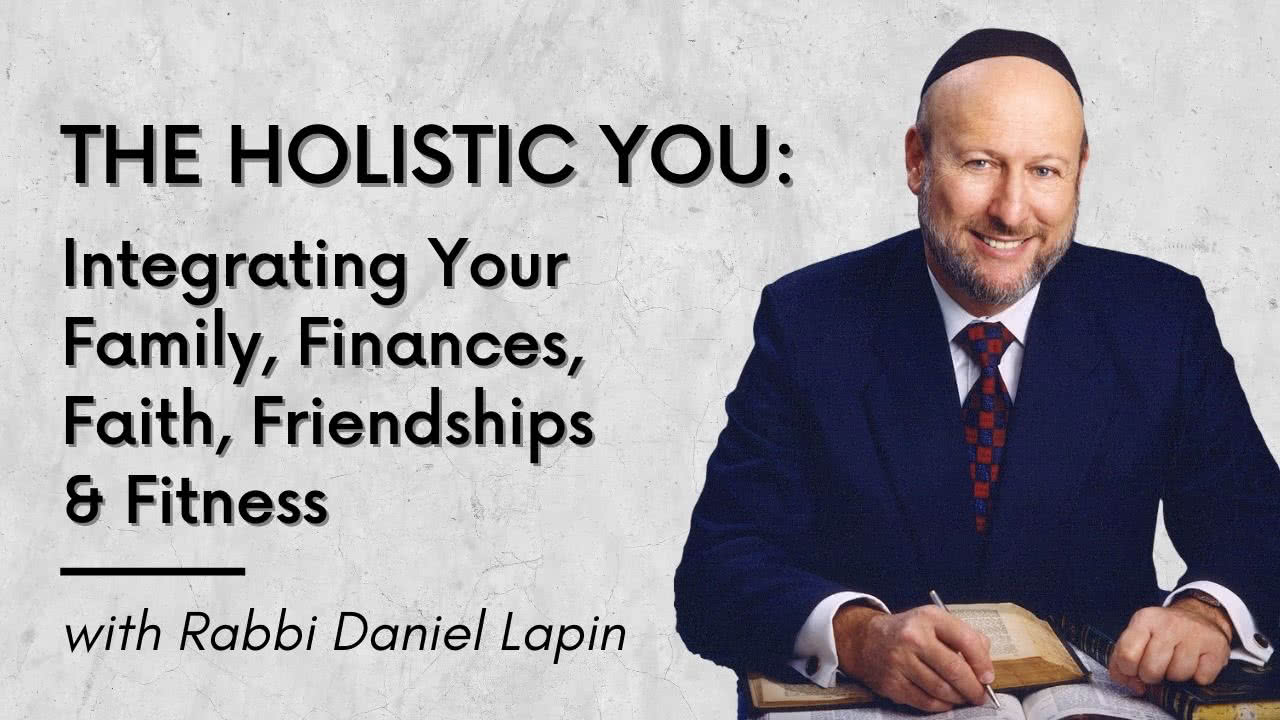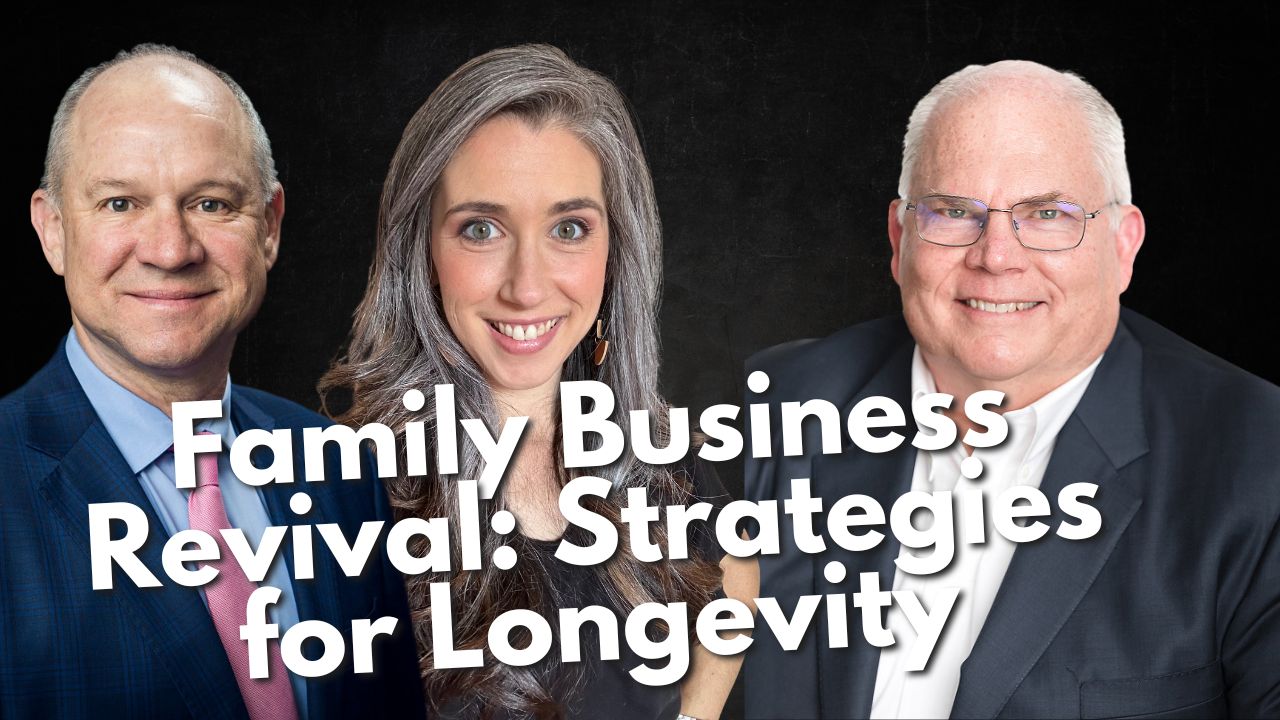
The Holistic You, with Rabbi Daniel Lapin
It can often seem that there’s a tradeoff between money and relationships, that you get one only at the expense of the other. But if you want to succeed in both critical life categories—you want thriving relationships you feel great about, and to live at the peak of your financial performance, you need wisdom that’s greater than both to get there. Today, we’re talking with Rabbi Daniel Lapin, author of Business Secrets from the Bible, Thou Shall Prosper: Ten Commandments for Making Money, and The Holistic You.
We’ll discuss why you need a holistic view of your financial performance, and how it relates to your family, friendships, and other relationships. This is ancient Jewish wisdom and Jewish financial principles for success in life.
If you want to feel good about your money and use it to benefit your family for generations to come… tune in now!
Podcast: Play in new window | Download (Duration: 55:30 — 63.5MB)
Subscribe: Apple Podcasts | Spotify | Android | Pandora | RSS | More
Table of contents
The Holistic You
The last time we had Rabbi Lapin as a guest, we had a fantastic time discussing Thou Shall Prosper, and the biblical wisdom of wealth. We’re delighted to welcome him back now to discuss another of his books, The Holistic You.
This book is a manual for integrating wealth, family, faith, and more—in a way that is fulfilling. Sometimes it can feel like juggling practice, so we’re excited to take a look at Rabbi Lapin’s wisdom in finding balance.
Rabbi Lapin came into this field because he found himself speaking to largely Christian audiences and was frequently asked, in earnest, why Jews seem to be disproportionately good with money. Without taking offense, he realized that it was a question worth pondering, and so he began to look for answers within scripture.
Debunking the “Scrooge”
[11:23] “[Business] is one of the only areas of activity where doing well is a function of being good. And this is a very hard thing for people to hear because they love the idea of Scrooge—the horrible, selfish, [inaudible] millionaire.”
In business, reputation is actually one of the most important aspects. Because those with poor reputations don’t last long in business. So the idea of the curmudgeonly Scrooge is a fantasy. In reality, businessmen strive to have good relationships, because what happens when a reputation goes south? Investors pull out, and money flows away from the company.
You can be an actor or a tennis player with great skill and manage to find success with a bad reputation. Business cannot be the same.
What is Business?
[15:20] “Business is just a technical term for people being nice to each other… Whether you like it or not, we happen to live in a world where… we are incentivized to be nice to other people with an incredible blessing called financial abundance… Business is becoming as useful as you can, to as many other people as possible. What could be more beautiful?”
Rabbi Lapin continues by saying that this is something that God smiles upon, because “Our Father in heaven is not so different from our fathers on earth.” In other words—all fathers prefer when their children get along.
However, some believe that because business owners are making money by doing so, it morally discredits the entire process. To that, Rabbi Lapin shares the story of a woman he knows, who battled cancer and survived. And to her, it was important that she find a wig that was comfortable and natural-looking so that she could restore a sense of normalcy to her daily life.
She searched high and low for the perfect wig, and once she had found one, began importing them. Then, she returned to her cancer treatment center and proposed a setup to help patients find a wig that suited them, so they didn’t have to wait or conduct their own lengthy search.
This was a service she provided to several hospitals, helping women with cancer regain their confidence after hair loss, and became wealthy doing so. And she came to Rabbi Lapin for guidance because her own Rabbi had told her that she should be ashamed for profiting off of the illness and suffering of other people. That Rabbi suggested that if she truly cared, she would do it for free.
Charity Requires Resources
The problem with this suggestion is that charity requires resources. If this woman had offered wigs to other cancer patients for free, how long until she ran out of funds? How many people would she have been able to help?
The bottom line is that she was doing an incredible service for thousands of women. She made the process of obtaining a high-quality wig simple and convenient—and likely saved many women money in the long run.
Profiting from this business allowed her to help many more people than she could through charity alone.
[20:40] “I helped her understand that she is providing an incredible service, and the fact that she is being paid for her service doesn’t in any way make it less—it makes it better. Because there’s no woman who buys a wig from her who felt coerced to do so. People came to her because she paid the rent to be on the site and nearby. And she was compassionate, and she was effective, and she was competent. That’s why they did it. And guess what? Most of those women, like most of us, would much rather pay for those services than receive them as a charity.”
What is a Happy Warrior?
Rabbi Lapin shares a story of his childhood, where he remembers being in a terrible mood, and his mother reminding him to be happy. His response was that he would be happy when she bought him a motorcycle. What she said after stuck with him.
[23:45] “She said, ‘Don’t ever forget, I’m not responsible to make you happy. You are.’ Anyway, I eventually matured a little bit and realized that nobody should ever get married until they’ve learned this lesson because otherwise, they’re going to poison the environment of their home and their spouse with this horrible…and addictive disease, to radiate your misery. Being happy is a moral obligation.”
[26:50] “So when I speak of people being happy warriors, the first part of it is ‘happy.’ Because not only are you going to do better in terms of social and family relationships if you are a happy person. You will…initiate a happier and better marriage and you will sustain a better marriage if you’re happy. You’ll raise children more effectively if you’re a happy person. Everything is better—and on the business front because business is serving other human beings. And you’re most effective at serving other human beings by having a lot of people know you, like you, and trust you. And if you’re a happy person, that’s part of the secret of being magnetic.”
If you’re a business owner, you’ve likely felt the difference in working with happy people versus unhappy people. So Rabbi Lapin concludes that being happy is good for finance, family, friends, and health—and we agree!
Why You Need to be a Warrior
[28:46] “The warrior part of it is also just as important, and that is to recognize that we live in a world of entropy. Now, what does that mean? It means that everything moves toward a state of disorder.
[31:34] “So we understand that we live in a world that tends toward chaos and disorder. So that means that if you want to have a house, then you must get used to the idea that you’re going to have to paint it and that the roof is going to need repair. And you’re going to have to get used to the fact that the garden is going to grow into a jungle of weeds if you don’t work on it. Everything moves in the direction of disorder—so you need to be a warrior. You’ve got to be willing to fight. Your business—your business tends towards deterioration, and you’ve got to fight it all the time.”
[32:52] “Everything worthwhile is a big fight, and so we all need to be warriors, and really happy about it.”
Finding Balance
[37:40] “You can see that with our bodies, the genius is not only the heart and the lungs and the kidneys—that’s not the only genius. The genius is how it all works together. And our lives are like that as well.”
In other words, our lives don’t depend on one thing functioning well. It’s not just about our relationships, or our finances, or our business. The thing that enriches our lives is how all of these components become integrated.
Our lives and our bodies function together. Rabbi Lapin shares the idea of the “placebo effect” in medicine. This shows that medicine is more effective when the patient has faith in their medication. While not 100% effective, placebos, or sugar pills, have a degree of success in nearly every clinical trial. This shows that there is a benefit to your physical health when faith is involved. And all areas of our lives work in this tandem, in ways we may not realize.
The Pathology of Poverty
A “poverty mindset” or “scarcity thinking” is a pattern of beliefs about money that keep you stuck. It’s a mindset in which fear—fear of not having enough—perpetuates a cycle of poverty. Because those who are fearful of what they don’t have often get stuck in cycles that keep them poor.
Rabbi Lapin expands on this further by talking about the relationship of family and friendship to poverty. And often those with a healthy support system do not have the means to be wealthy. And there’s compelling evidence to suggest that family structures actually support wealth.
[44:32] “The idea that you can retain financial integrity while forgoing faith, family, friendships—it’s laughable.”
Improve Your Relationships, Improve Your Life
The bottom line of our discussion with Rabbi Lapin is that everything is integrated. When you build good relationships, you build good business, and when your family life is thriving, your business is thriving. When you work on your fitness, you have more energy, which helps your relationships and your business. And when your finances are good, you can be a better support system in your relationships and business.
To learn more about being happy and integrating the different aspects of your life, we highly recommend reading Rabbi Lapin’s book, The Holistic You.
Rabbi Daniel Lapin
Rabbi Daniel Lapin is an author, speaker, and TV host. He immigrated to the United States from South Africa after studying mathematics, physics, and economics in Israel and the United Kingdom.
His books include America’s Real War, Business Secrets from the Bible, and Thou Shall Prosper-The Ten Commandments for Making Money. All have been translated into Chinese and Korean.
Rabbi Lapin is a frequent speaker for trade groups, political and civic organizations, financial conferences, and companies around the globe. He regularly appears on radio and television shows. Newsweek magazine included him in its first list of America’s fifty most influential rabbis. His weekly podcast now enjoys over 100,000 downloads, as do his weekly columns.
With his wife Susan, he hosts the daily TCT television show Ancient Jewish Wisdom. An enthusiastic boater who has sailed his family across the Pacific, Rabbi Daniel Lapin lives in Maryland. With him, he has his seven children that he and his wife homeschooled. His website is www.YouNeedaRabbi.com
Book A Strategy Call
Do you want to coordinate your finances so that everything works together to improve your life today, accelerate time and money freedom, and leave the greatest legacy? We can help!
Book an Introductory Call with our team today https://themoneyadvantage.com/calendar/, and find out how Privatized Banking, alternative investments, or cash flow strategies can help you accomplish your goals better and faster.
That being said, if you want to find out more about how Privatized Banking gives you the most safety, liquidity, and growth… plus boosts your investment returns, and guarantees a legacy, go to https://privatizedbankingsecrets.com/freeguide to learn more.
Family Business Longevity, with Rob Ferguson
Family businesses have a shrinking lifespan. Families in business together face conflicts and challenges that have made it increasingly difficult to build a business that lasts generations. Yet Rob Ferguson, founder of Ferguson Alliance, says that family businesses can live to infinity with the right systems and tools. Today, we’re discussing how the key components…
Read MoreStop the Hustle and Grind, with Christine Jewell
Are you an ultra-high achiever, but feeling the cost of that success? Christine Jewell, author, keynote speaker, faith-based executive coach, and host of the Breaking Chains podcast, joins us today to provide a fresh solution. In her new book, Drop the Armor, Christine teaches you a transformational approach that allows you to stop the hustle…
Read More


